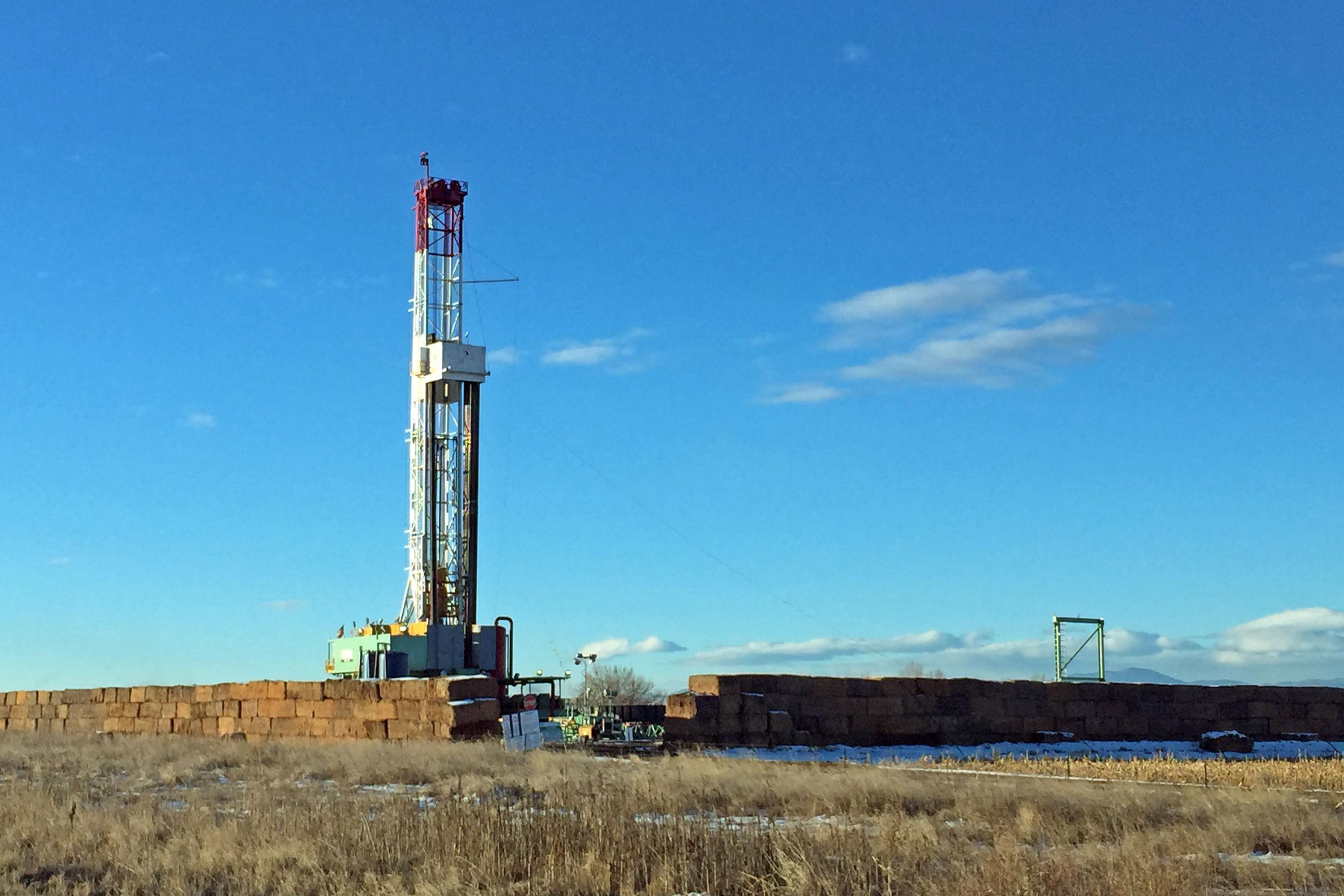

Longmont city leaders have a first-of-its-kind deal to stop surface oil and gas activity. City leaders voted Tuesday night to pay two oil and gas companies $3 million to abandon several active wells and to give up both a dozen future drilling sites and 80 well permits. One of the few active wells in town will be moved outside city limits to Weld County.
“I just think this is the best we could have done. And it accomplished to a great extent what Amendment 300 set out to do,” said Mayor Brian Bagley referring to a 2012 voter-approved ban on hydraulic fracturing in Longmont. It was struck down in 2016 by the Colorado Supreme Court.
Since the Colorado Supreme Court’s ruling, cities and counties seeking limits on oil and gas activity have struggled to forge a path forward. It’s a path that forces local government leaders to walk a difficult line, one that includes strict measures for operators, but doesn’t provoke lawsuits.
Colorado Oil and Gas Association President Dan Haley doesn’t see any legal concerns with the Longmont agreement “where each party willingly entered into the contract.” Yet, he said it isn’t a one-size-fits-all solution.
“What works for one operator and one community may not work for others.”
Cash Money Is The Latest Tool For Local Control
Most on Longmont’s city council acknowledge the $3 million deal isn’t perfect. Companies can still drill hundreds of vertical feet under nearby Union Reservoir. But council member Marcia Martin said it was the best solution the city had to limit the effects of oil and gas development.
“What we are dealing with is neither a moral nor a legal issue. We are dealing with an issue of power,” said Martin, referring to the Colorado Supreme Court’s elimination of bans and moratoriums.
Efforts since then have achieved limited success. In 2017, Thornton city council members approved a suite of strict rules for drillers, some of which went beyond statewide limits on things like setbacks. Cities like Broomfield negotiated heavily with oil and gas drillers to set limits on piping and extraction.
An industry suit against Thornton, and a subsequent 2018 ruling showed there are limits to a city power. Municipalities can push the limits, but they can’t override state rules on things like setbacks.
COGA’s Dan Haley pointed out that local cities and towns “have a guide from the state Supreme Court, and the recent ruling in Thornton, that shows clearly what they can and cannot do when it comes to oil and gas development.”
The Thornton lawsuit ruling sent some cities like Broomfield back to review and reconsider their actions for fear of running afoul of the law. Meantime, Boulder County told The Denver Post that it would not be deterred.
“We know that the oil and gas industry is litigious. That will not stop us from doing everything we can to protect public health and the environment,” Boulder County Planner Kim Sanchez said.
In that same vein, the city of Boulder extended their moratorium on oil and gas applications by emergency ordinance so it can craft rules for companies. The move extended a five-year-old moratorium by two more years.
“There’s no evidence that it’s being safely regulated,” said city attorney Tom Carr, referring to the 2017 Firestone home explosion that killed two men. “So the city council is very concerned about protecting our citizens.”
Is The Longmont Approach A Long-Term Solution?
There are residents with reservations about Longmont’s plan. Elsie Klassen sat for hours in a hot, stuffy meeting room Tuesday night before criticizing the effort.
“By compromising with oil and gas and companies and passing this ordinance you may be placating many Longmont residents,” Klassen told councilors. “We will still be fracked and we will all be dealing with the consequences.”
One question about Longmont’s local control strategy is how permanent it will be. The site agreement and relinquishment is between two oil and gas companies that are currently active in town. Unlike the fracking ban passed by voters in 2012, the payout approved by the council doesn’t preclude other companies from taking action. Presumably, the agreement only applies to the two companies involved
So to what extent is it an invitation to other companies that have active mineral interests to ask for compensation in exchange for no action?
Mayor Brian Bagley said that scenario is unlikely. That’s because Longmont passed oil and gas regulations eliminated drilling in any area zoned residential in 2012, effectively protecting a large chunk of the city from development. The $3 million strikes a deal with the two companies that own mineral rights in the remaining percentage of land in Longmont where drilling is still legal.
“So the first step was to get oil and gas controlled by the regulations which basically took out 95 percent of Longmont. And this agreement takes out the final 5 percent,” Bagley said.
Technically, if Longmont softens its oil and gas regulations, it could pave the way for other companies to drill inside city limits. But Bagley thinks the probability of that happening is low.
“It could happen, but why would anyone do that?” Bagley said. “This quilt of agreements essentially protects Longmont forever [from] drilling on the surface within Longmont.”









